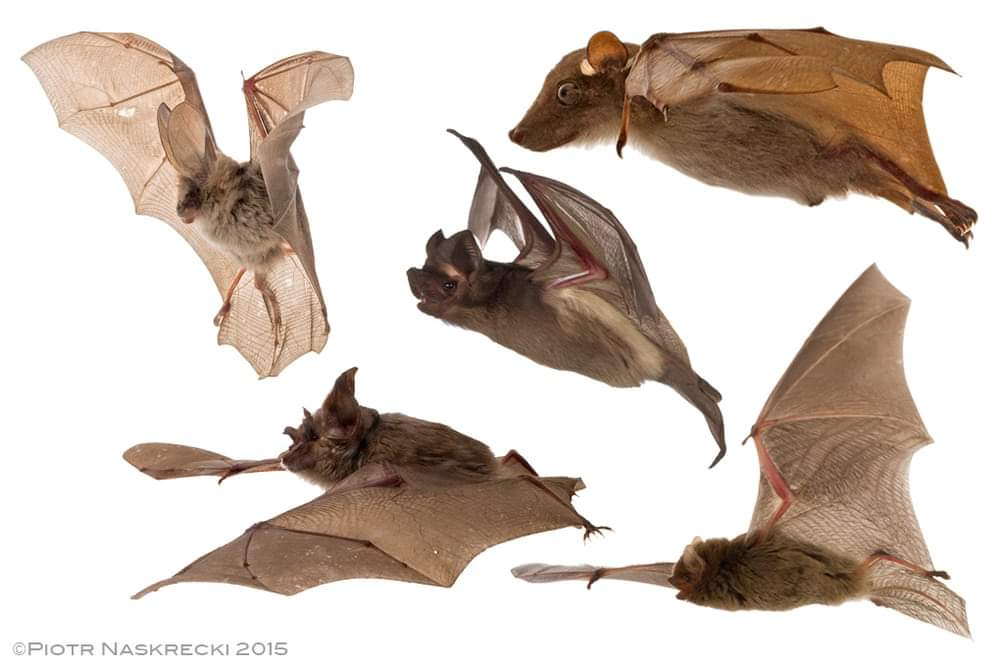"Natural epigenetic variation in bats and its role in evolution" without Darwin review
The paper "Natural epigenetic variation in bats and its role in evolution" explores evolution outside of neodarwinism. It concludes:
Epigenetic modifications are changes to the DNA that do not change the underlying genetic sequence as with NeoDarwinism. These modifications can affect how genes are expressed, and can be inherited by future generations.
Bats living in diverse environments show geographic variations in phenotype, such as body size, wing morphology, and echolocation call frequency.
Studies have shown that epigenetic modifications can mediate environmentally induced phenotypic variation in bats.
Epigenetic variation in bats is extensive, and exceeds the corresponding genetic variance. This suggests that epigenetics plays an important role in the evolution of bats outside of NeoDarwinism.
The paper discusses three possible mechanisms by which epigenetic variation could contribute to the evolution of bats:
DNA sequence divergence: Epigenetic modifications can accumulate over time in different populations, leading to DNA sequence divergence.
Epigenetic drift: Epigenetic modifications can be randomly inherited, leading to changes in the distribution of epigenetic variation in a population.
Environmental variables: Environmental factors can induce epigenetic changes, which can then be inherited by future generations.
The paper concludes that epigenetic variation is an important factor in the evolution of bats, and that it plays a role in other organisms as well. This suggests that the traditional neodarwinian view of evolution, which focuses on genetic variation needs revision to incorporate the role of epigenetics.
Here are some additional thoughts on the role of epigenetics in evolution outside of neodarwinism:
Epigenetic modifications may provide a mechanism for rapid evolution. Genetic changes can take many generations to accumulate, but epigenetic changes can be inherited more quickly.
Epigenetic modifications may allow organisms to adapt to new environments more effectively. By changing the expression of genes, epigenetic modifications can allow organisms to respond to environmental changes in a way that genetic changes cannot.
Epigenetic modifications may be a way for organisms to store environmental information. Epigenetic changes can be passed on to future generations, which could allow them to be better prepared for the environment that they will inherit.
Overall, the study of epigenetics is providing new insights into the process of evolution. Epigenetic modifications plays a major role in a variety of evolutionary processes, and is an important factor in the evolution of complex traits.
Article snippets:
"When facing the challenges of environmental change, such as habitat fragmentation, organisms have to adjust their phenotype to adapt to various environmental stresses.
Recent studies show that epigenetic modifications mediate environmentally induced phenotypic variation, and this epigenetic variance is inherited by future generations, indicating that epigenetic processes have potential evolutionary effects.
Bats living in diverse environments show geographic variations in phenotype.
We have explored the natural epigenetic diversity and structure of female populations of the great roundleaf bat.
We have also estimated the effects of genetic variance and ecological variables on epigenetic diversification.
All three bat species have extensive epigenetic diversity that EXCEEDES the corresponding genetic variance {Darwin}.
DNA sequence divergence, epigenetic drift and environmental variables contribute to the epigenetic diversities of each species.
Environment-induced epigenetic variation may be inherited as a result of both mitosis and meiosis, and their potential roles in evolution for bat populations are also discussed."




Comments
Post a Comment